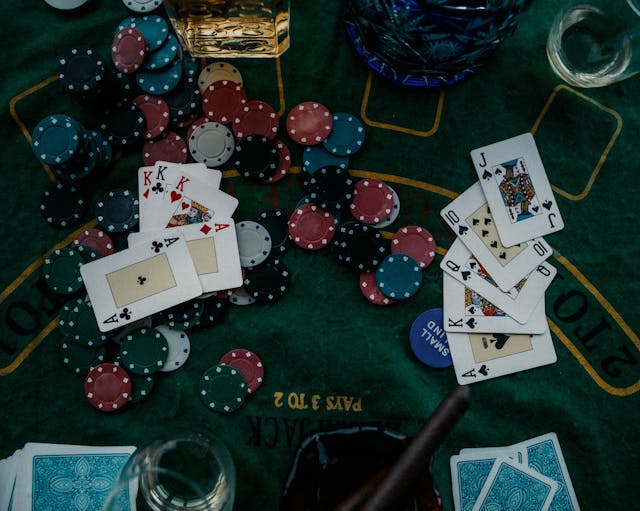Every poker player knows tilt isn’t just about emotion. It’s the slow decay of decision-quality under mental load. You start chasing losses, widening ranges, calling too light, and the brain’s inhibitory circuits quietly go offline. What feels like frustration is really a collapse of cognitive control — a brain drained of its regulatory resources.
Why Tilt Is a Fatigue Problem, Not a Temper Problem
Recent research shows that mental fatigue alters how we value effort and reward, shifting the brain toward easier, faster responses, rather than deliberate ones. A 2022 study in Scientific Reports found that cognitive fatigue weakens neural markers of feedback processing and increases risk-aversion during complex decision tasks. Fatigue raises the perceived cost of mental effort, reduces executive control, and drives people toward simpler heuristics — the mental shortcuts we take when tired.
In poker, that mechanism plays out hand after hand. Hundreds of micro-decisions per hour push players past the depletion threshold faster than they realize. Once the brain’s “decision battery” runs low, it stops weighing probabilities and starts favoring comfort. Recognizing tilt as metabolic and attentional decay, not a failure of discipline, reframes everything. You don’t need to power through; you need to reset your decision systems so they can function again.
Using Blackjack to Recalibrate Fast, Rule-Based Thinking
Poker decisions are probabilistic — there’s uncertainty in every hand. But one reason fatigue snowballs is that players spend hours evaluating incomplete information. The quickest way to reset a tired brain is to move briefly to a closed-rule environment, where decisions follow fixed logic instead of fluctuating variables.
That’s where blackjack comes in. Its clear “split, stand, double” rules train the same recognition circuits poker players rely on, but with deterministic feedback. For a quick cognitive reset, open blackjack games at Cafe Casino and scan three example hands. Identify, in your mind only, where you’d split or double — no bets, no interaction. Using Blackjack Games Cafe Casino as a visual decision gallery gives your brain fast, rule-bound stimuli that re-engage focus without the emotional volatility of poker.
To reinforce that calibration, this YouTube video titled “Do You Know When to Split in Blackjack?” works perfectly as a short exercise.
A Three-Minute Reset Protocol
1. Recognize the drain.
Tilt often starts quietly — hesitation before obvious folds, replaying past hands, or chatting more than usual at the table. These aren’t personality changes; they’re neurological red flags.
2. Step away from the table.
Continuing to play through mental fatigue compounds losses. Step back, stand up, and detach from stimuli. The brain recovers faster when you stop feeding it new decisions.
3. Run your recognition drill.
Use the blackjack scan or the short video to reactivate rule-based thinking. This is sometimes called cognitive decoupling: separating emotion from action by engaging deterministic reasoning. You’re retraining the prefrontal cortex to prioritize logic again.
4. Add a sensory anchor with breathing.
Take ten deep, slow breaths while touching a physical surface like poker chips or your desk edge. A 2023 systematic review of regulated breathing practices found that slow-paced and diaphragmatic breathing is associated with greater parasympathetic tone and stress/anxiety reduction, particularly when sessions last at least five minutes and include guided instruction.
5. Refresh one constraint.
Before returning, pick a single operational rule — for example, “no three-bet bluffs out of position for two orbits.” Narrowing focus trims decision clutter, letting your cognitive system stabilize before reloading.
Why This Works
Decision fatigue isn’t purely mental — it’s physiological. When effort costs rise, dopamine and glucose availability drop, making effort feel punishing. Recognition drills like the blackjack exercise reintroduce predictability, giving the brain a short sense of control and competence. That brief win-state resets the anterior cingulate cortex, which governs error monitoring. Breathing then brings down physiological stress, while a one-rule refresh shrinks the mental search space. Together, they form a cognitive cooldown — a deliberate reset rooted in neuroscience, not superstition.
Integrating the Routine
You can repeat this reset every 60–90 minutes or any time you feel mental friction building. It doesn’t interrupt flow; it preserves it. In fact, skilled players who track mental energy metrics often find they make their highest EV decisions immediately after short, structured breaks. You’ll notice that post-reset, your thoughts feel linear again — no racing, no second-guessing. Over time, this practice teaches your mind to recognize fatigue earlier, turning awareness into prevention.
Decision Fatigue vs Emotional Tilt
Emotional tilt is the loud version — anger, disappointment, and impulsivity after a bad beat. Decision-fatigue tilt is quiet erosion. You’re not angry, just foggy. Fold timings stretch, bet sizing drifts, and logic collapses under strain. The fix for emotional tilt is reflection; the fix for cognitive tilt is recovery. High-level players train both, because knowing when to stop thinking is as powerful as knowing when to start again.
The Deeper Layer: Building a Mental Maintenance Habit
Think of your brain like a finely tuned motor. It doesn’t just overheat from stress — it overheats from constant micro-calculation. Even if you play perfectly, the act of deciding still drains your energy. Scheduling structured resets every hour is like oiling the engine. It keeps cognitive friction low so that when critical moments arise — bubble play, final-table aggression, ICM spots — your decision-making remains fluid.


